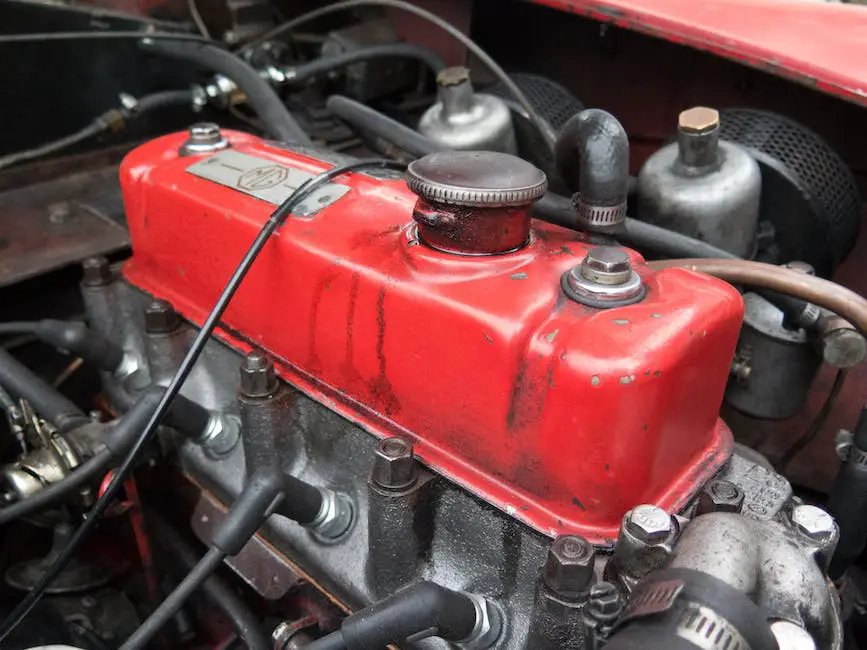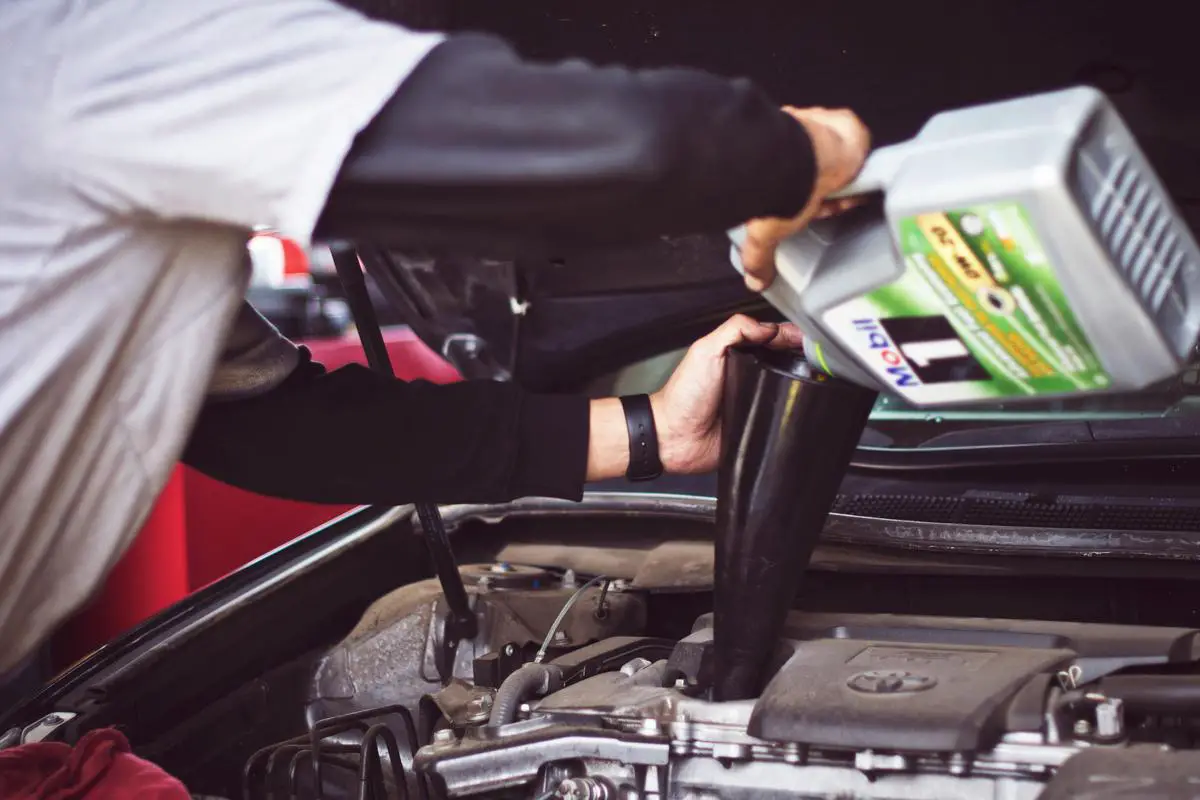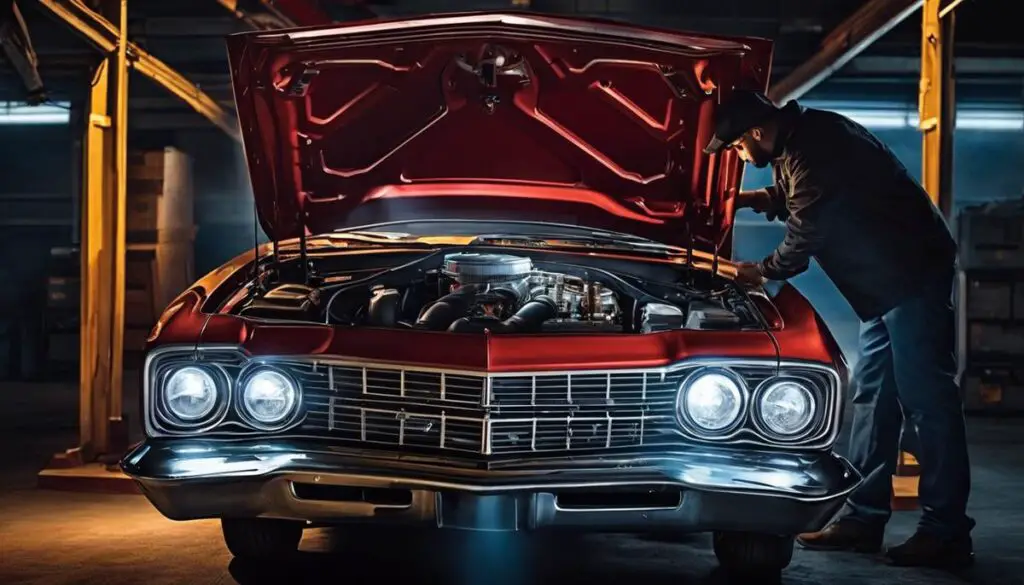If you’re an owner of an Impala car, you may have come across a troubling message at some point – ‘Engine Hot AC Off.’ This warning can be perplexing and, understandably, cause for concern. Whether you’re behind the wheel in the height of summer or the chilly depths of winter, a hot engine is a problem you need to address with urgency. This article is designed to provide insights into what this message could mean and how you can address the potential under-lying issues. From understanding the intricate roles of temperature sensors and coolant levels to the complexities of the thermostat, this guide aims to equip you with a holistic knowledge base.
Understanding the issue
Understanding the ‘Engine Hot AC Off’ Indicator in Chevy Impala
In the intricate code language of hi-tech vehicles, Chevrolet Impalas are no exception. A constant fascination, the Chevy Impala models have a particular indication marked as “Engine Hot AC Off”. Spotting this on your car’s console might be bemusing for an uninitiated driver who’s not tech-inclined. This article will demystify what it stands for and why it transpires.
Introduced by General Motors as a safeguard to protect the engine, the ‘Engine Hot AC Off’ warning indicates an engine that’s overheating or a malfunctioning temperature gauge. Upon detection of excessive heat, the car takes precautionary measures to cool down the engine, one of which includes turning off the air conditioner. This is premised on the fact that running the AC enhances the engine’s load, thereby causing an escalation in the engine’s heat generation.
Understanding why this occurs takes us into the realm of internal combustion engines. Engines operate optimally in defined temperature conditions. Exceed these limits, and complex machinery begins to function less than optimally, which in severe cases, could lead to engine damage. An engine might overheat due to numerous reasons, including a faulty thermostat, blocked radiator, leaking cooling system, or even a damaged water pump.
Chevrolet, being tech-forward, has integrated intelligent systems into Impalas that respond to these issues proactively. When the engine temperature exceeds safety limits, the sensor triggers a warning and initiates steps to bring down the temperature, hence the ‘Engine Hot AC Off’ warning.
Now that we know what it means and why it occurs, let’s delve deeper into what action should be taken when confronted with this warning. It’s not a sign that can be ignored or postponed. When you observe the ‘Engine Hot AC Off’ warning, it’s advisable to pull over at a safe location as soon as possible and turn off the engine to allow it to cool down.
Following a cooldown period, check for visible issues such as leaks in the coolant system or the radiator. If these components appear to be functioning correctly, the problem might be in the temperature sensor. In such cases, it is recommended to consult professional vehicle maintenance services or a trusted garage.
With automobiles increasingly veering towards a future that is smart and connected, understanding the coded messages becomes essential. Knowing what “Engine Hot AC Off” means in your Chevy Impala, why it occurs, and the suitable course of action is all part of being a savvy, tech-enthusiast driver. In this automated age, being aware and observant will help bridge the gap between ourselves and the supercomputers on wheels that we drive every day. It’s all a part of embracing the full potential of technology at our fingertips.
Remember, technology operates on a simple axiomatic principle – If you take care of it, it’ll take care of you.

Troubleshooting Techniques
Resuming from where we left off, let’s delve into initial troubleshooting techniques to solve the ‘Engine Hot AC Off’ Impala issue. First and foremost, bear in mind that as tech-enthusiasts, we need to approach this from an analytical standpoint and have all tools and resources at hand. The tasks require basic automotive knowledge and maintenance comprehension, but don’t worry – here’s a step by step guide to navigating such.
First up, check the coolant. In case the coolant level has dropped significantly or has dried up completely, it’s likely to cause an overheating engine and automatically trigger the ‘Engine Hot AC Off’ warning. There should be two marked levels for cold and hot conditions; ensure it’s in the right level depending on the engine temperature. If you identify an issue here, this might be the root cause of the problem. Refill up to the appropriate line and monitor if the problem repeats itself.
Next, inspect the engine oil. The oil should be neither too dirty nor overly diluted. If the compressed oil is unable to lubricate the engine, it’s bound to overheat. So check the oil levels and the viscosity. Top it off or replace if necessary, depending on what the state of the oil is.
Turn the attention onto the radiator fan. It’s arguably one of the most important components of the cooling system. If you find your engine heating up despite you driving at a lower speed or while idling, it’s a sure shot sign that the radiator fan is not functioning optimally. Examine the fan’s condition to confirm if it needs repair or replacement.
Lastemphasized textly, scrutinize the serpentine belt. An often overlooked yet important part of the cooling mechanism is the serpentine belt. If the belt is loose, it could fail to turn the water pump adequately, leading to engine overheating. Check if the belt’s tension is appropriate and if it appears to be in good condition. If there are signs of cracks or splits then it’s likely due for a replacement.
Remember, these are initial troubleshooting steps. While it’s fulfilling and cost-effective to be a car DIYer, it’s also important to understand the limitation. If your Chevy Impala continues to display the ‘Engine Hot AC Off’ message after performing these checks and fixes, it’s time to surrender the baton to the professionals. Failing to treat an overheating engine can lead to severe engine damage. Don’t let the tech whisperer in you forget that sometimes, professional intervention is the most efficient answer.

Photo by timmossholder on Unsplash
Professional Inputs
Determining when to seek professional help for a persistent “‘Engine Hot AC Off’ Impala” issue depends on the success, or lack thereof, of your post-cool-down troubleshooting attempts. A point to note is, this warning is not triggered by trivial matters. Therefore, your car’s underlying problem might be something beyond a tech enthusiast’s DIY capabilities.
Consider essential factors like coolant level and engine oil level. Be quick to refill coolant if levels are low and change your engine oil if necessary. Neglecting these fluid levels, while being attentive to shiny gadgets, could spur serious long-term problems.
Inspection of the radiatore fan isn’t just about its rotation. Look for signs of damage, such as cracks or loose wiring. Even small discrepancies can affect the overall performance, causing your engine to overheat. You must replace the radiator fan if it’s damaged or malfunctioning to prevent recurring issues.
Analyzing the serpentine belt requires a keen eye. Look out for wear and tear, cracks, and damage to the belt’s ribs. Also, ensure the belt has adequate tension. A loose serpentine belt can lead to the failure of multiple peripherals attached to it. If you find it difficult to make this assessment, get professional support.
Be aware of the limitations of DIY troubleshooting to prevent causing unintentional damage to your vehicle. Even with a high level of tech-savvy, meddling with your vehicle’s complex systems can be risky. Therefore, if issues persist after your troubleshooting attempts, it’s a clear sign that the terrains you’re navigating require a professional’s finesse.
Lastly, remember that getting professional assistance early can prevent a minor issue from escalating into a major defect. Fast action will keep your tech-laden Impala purring comfortably mile after mile, ensuring that you own a vehicle that’s as forward-thinking and problem-solving as you are. In the long run, right decisions made at the right time reflect effective caretaking and can save you money, time, and potential frustration.

As Impala owners, the last thing we want to see is a warning light illuminating our dash. However, with the right knowledge and tools, addressing an ‘Engine Hot AC Off’ is certainly manageable, whether on your own or with professional assistance. It’s crucial for drivers to identify when the situation demands professional help, understand the associated costs, and most importantly, learn the preventions for a smooth and trouble-free ride in the future. Remember, it’s not just about fixing the problem, but also understanding it to ensure your car’s longevity, performance, and your safety.

Tomas is a retired Chevy Auto Technician that brings decades of hands-on experience and expertise to the table. He’s also a father to two incredible daughters. He enjoys using his knowledge and experience to help you solve and find reliable information on Chevrolet vehicles. Whether it’s troubleshooting engine problems or providing tips for maintenance, Thomas is committed to helping Chevy owners keep their vehicles running smoothly and safely.




